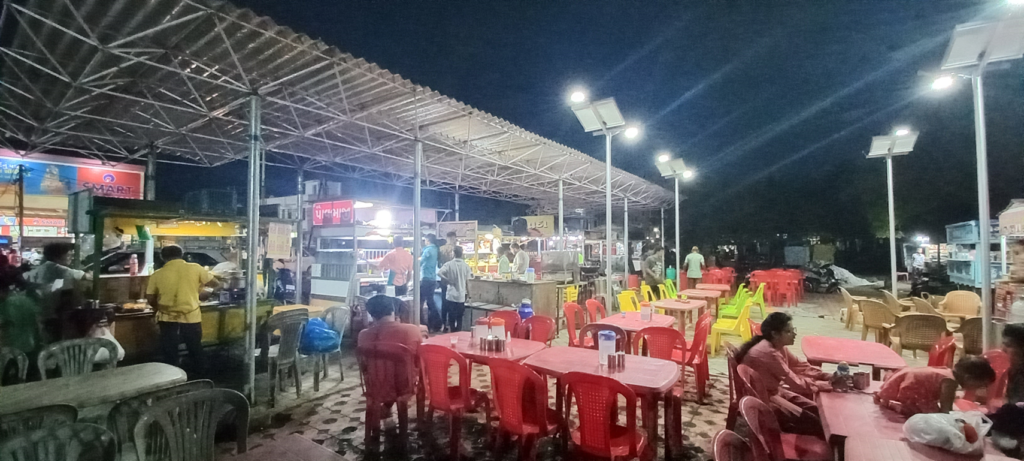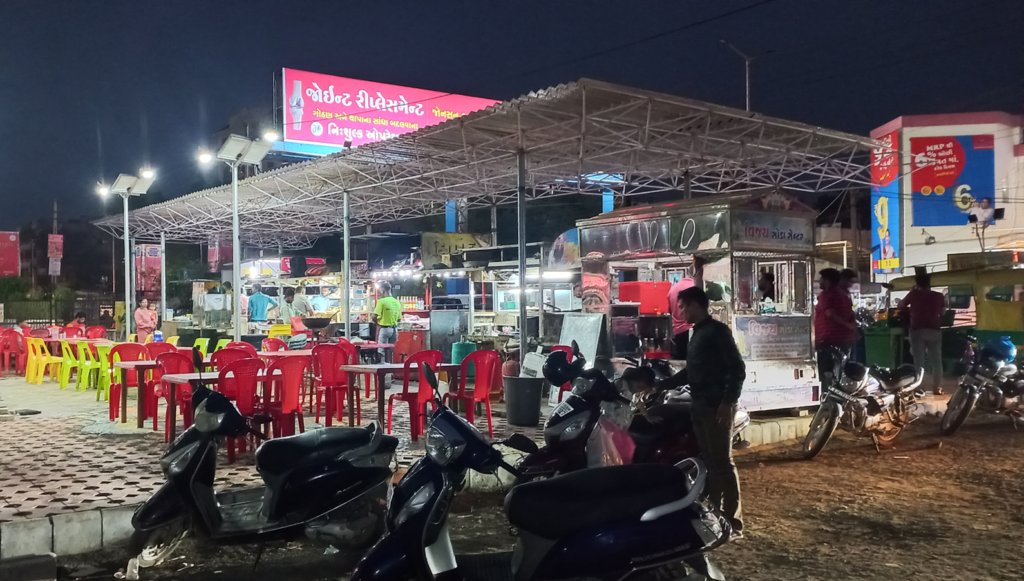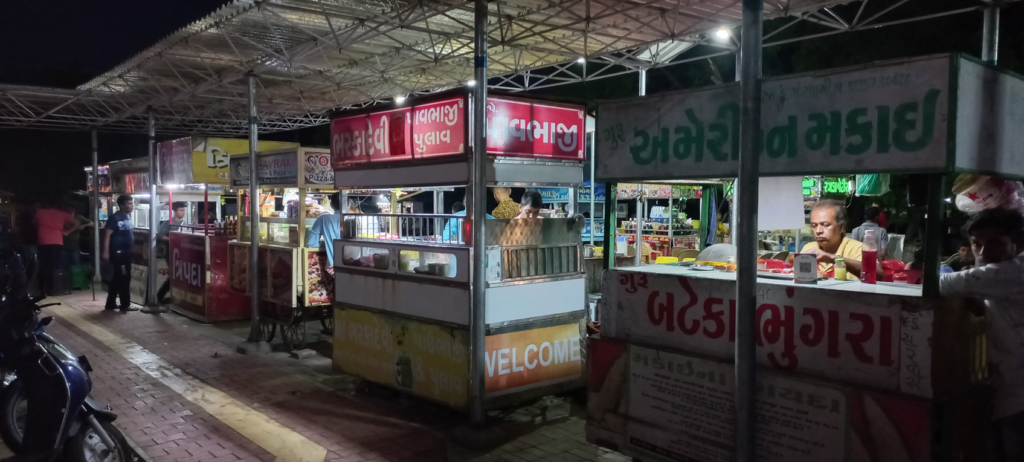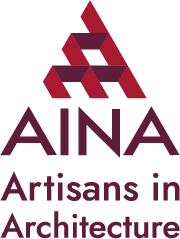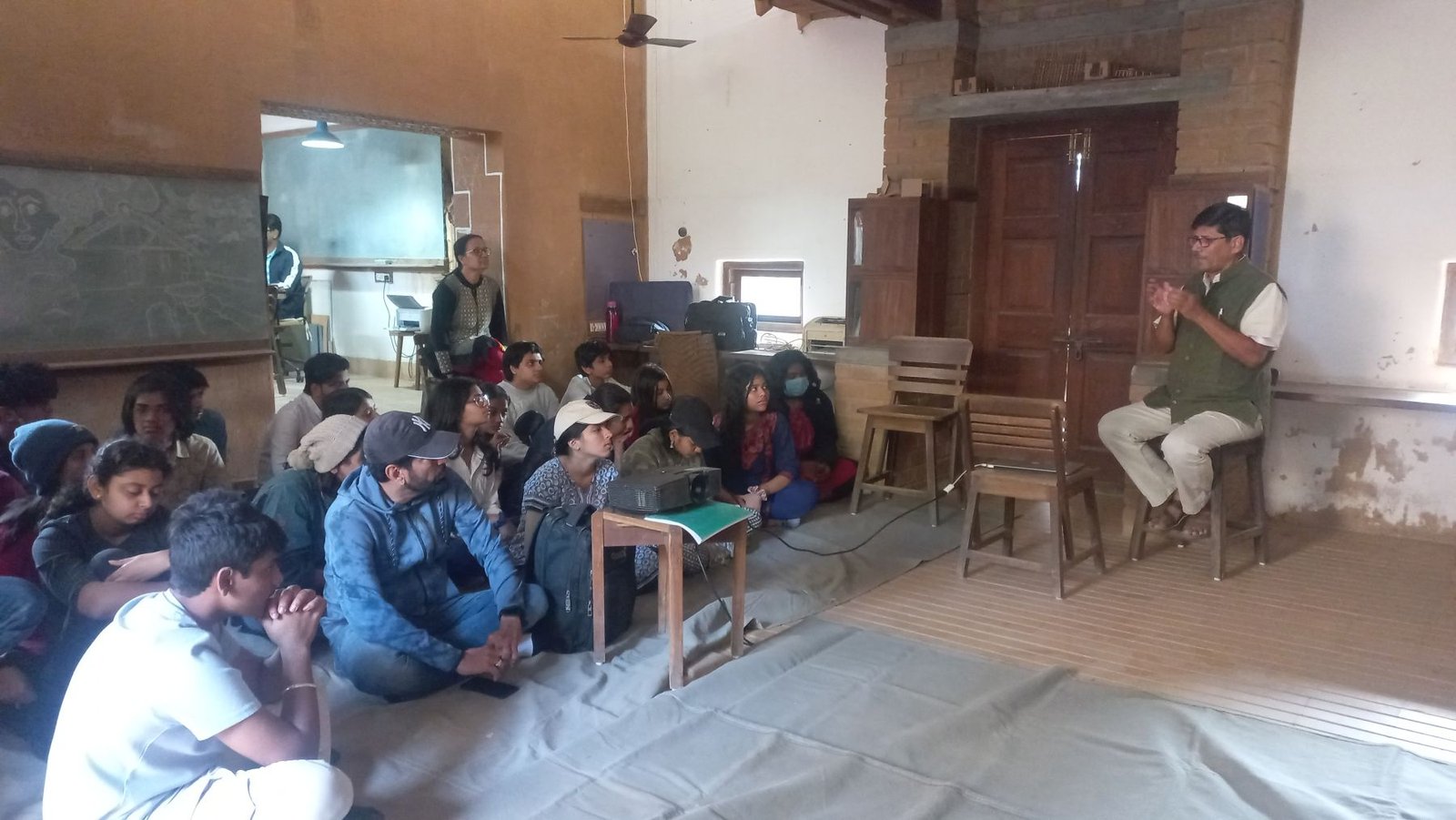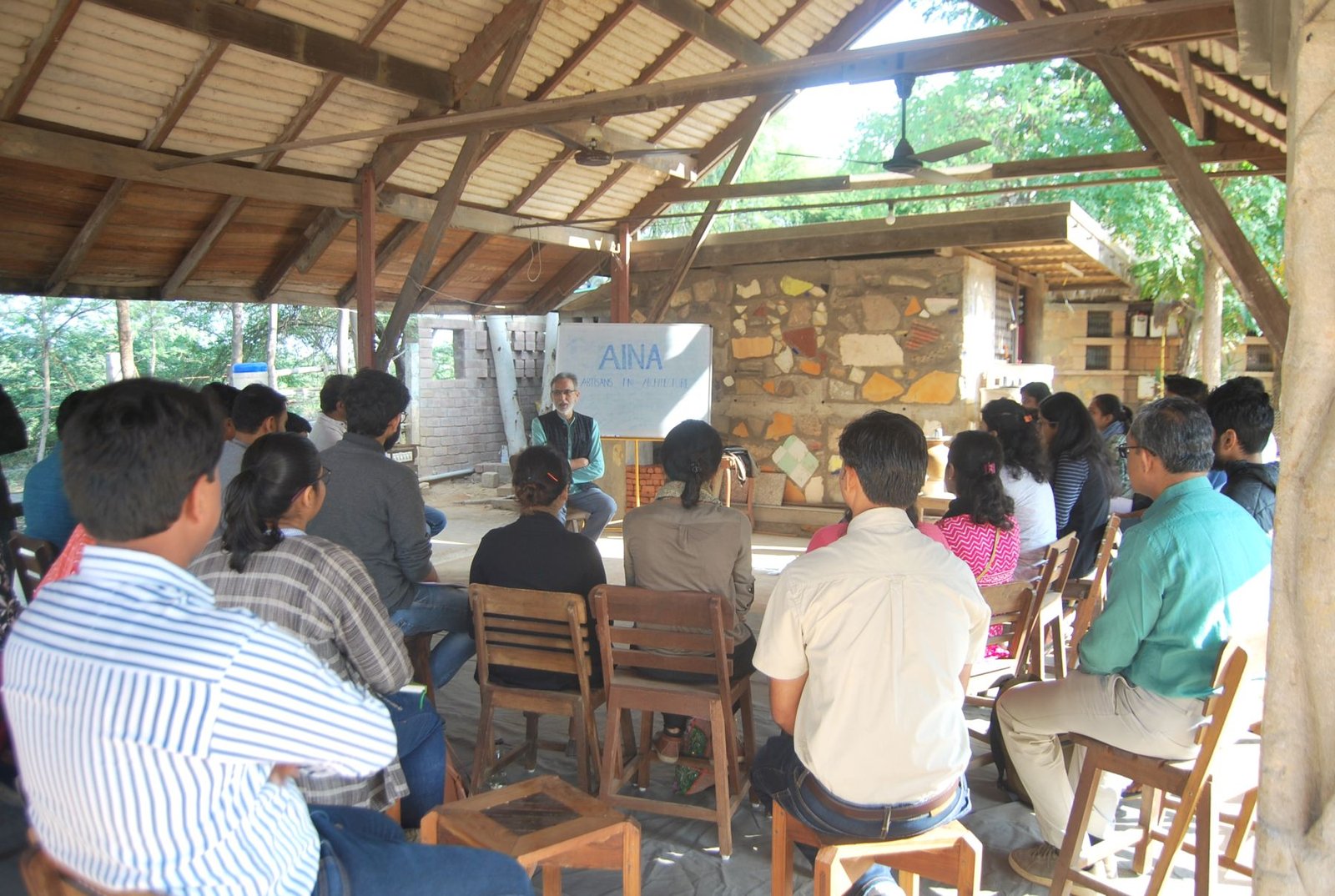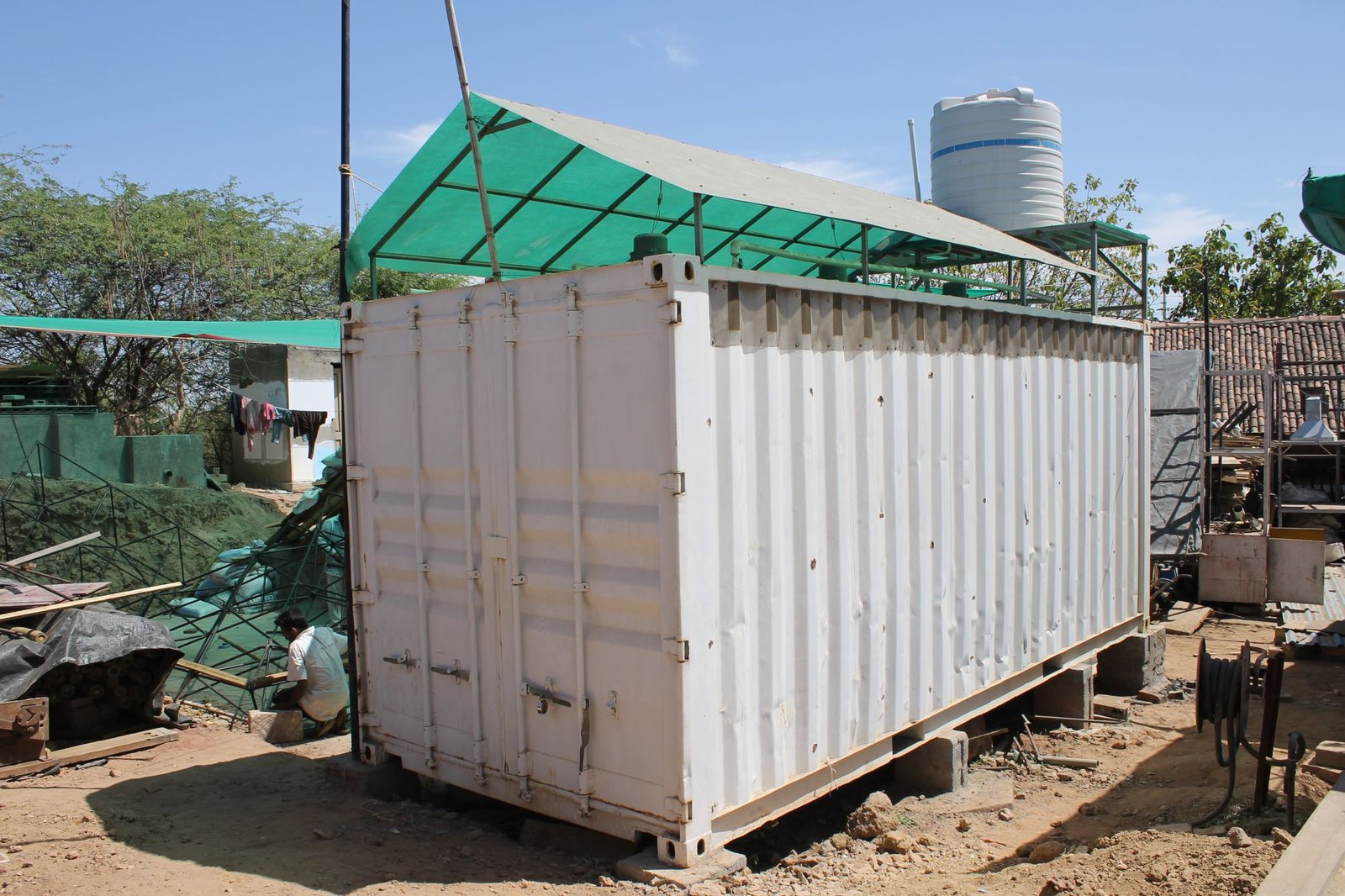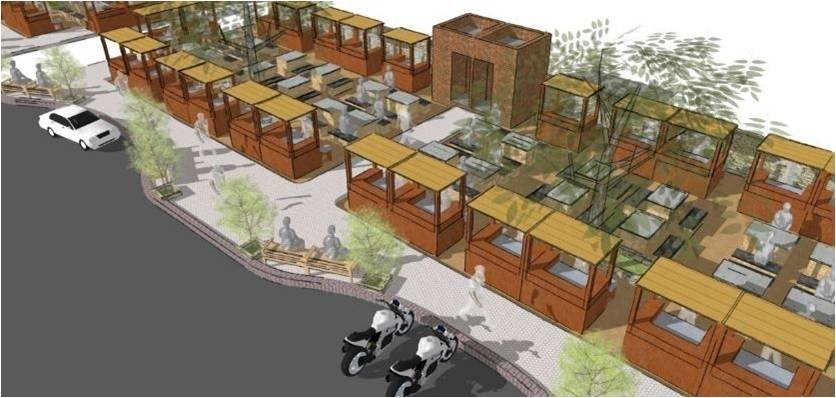
Hunnarshala, an organisation working with the urban poor in Bhuj, initiated a project in 2015 to explore and formalise street vending as a livelihood option. They started with a pilot project in Jubilee Circle and Bhuj Haat, two prominent locations for street vending in the city. This pilot aimed to understand the dynamics of street vending and its linkages with the streets and various stakeholders.
The organisation soon realised that street vending was not isolated from the surrounding environment, including traffic and other aspects of the streets. As a result, their focus expanded beyond vending and traffic to include a comprehensive study of the streets themselves. They undertook a city-wide reconnaissance, collaborating with students from Tata Institute of Social Sciences (TISS) to gain insights into the present layers of the street system.

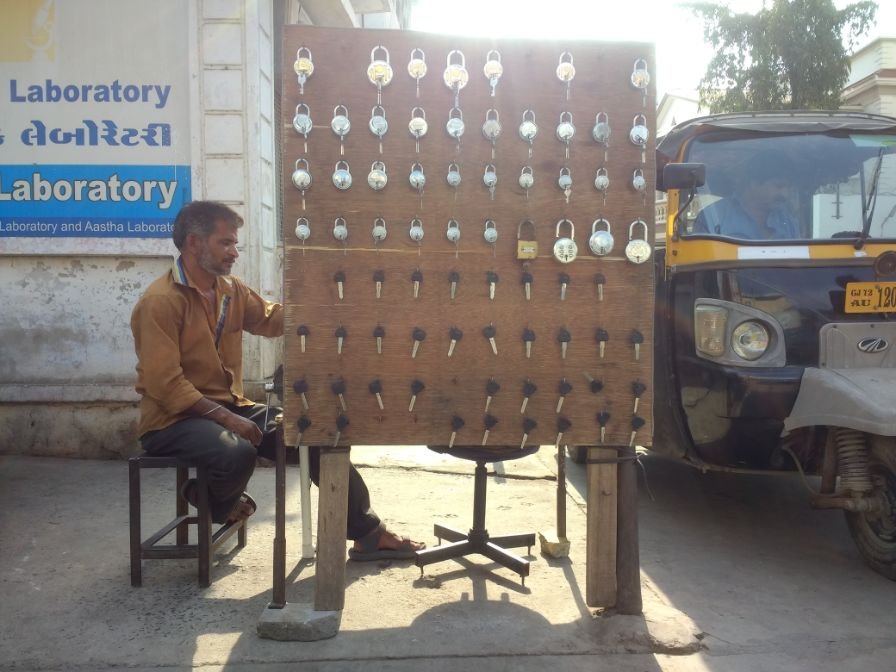
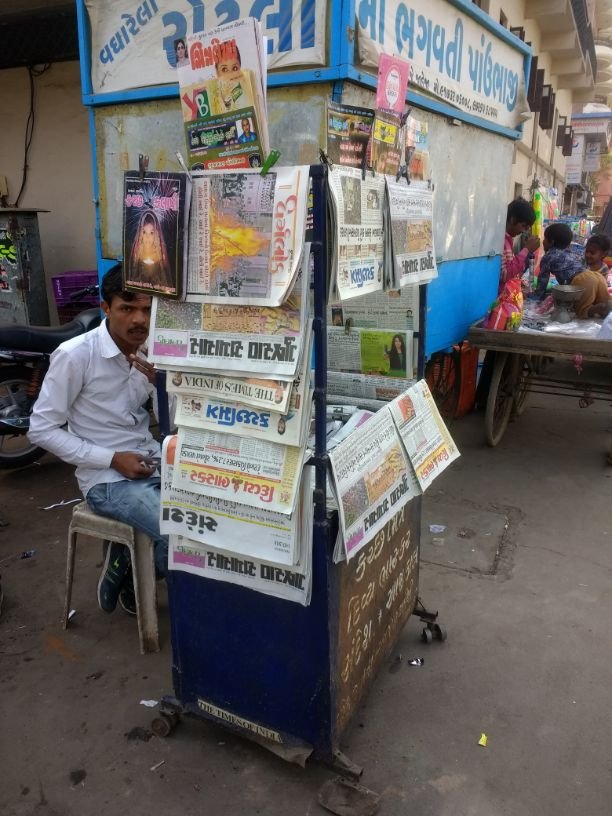
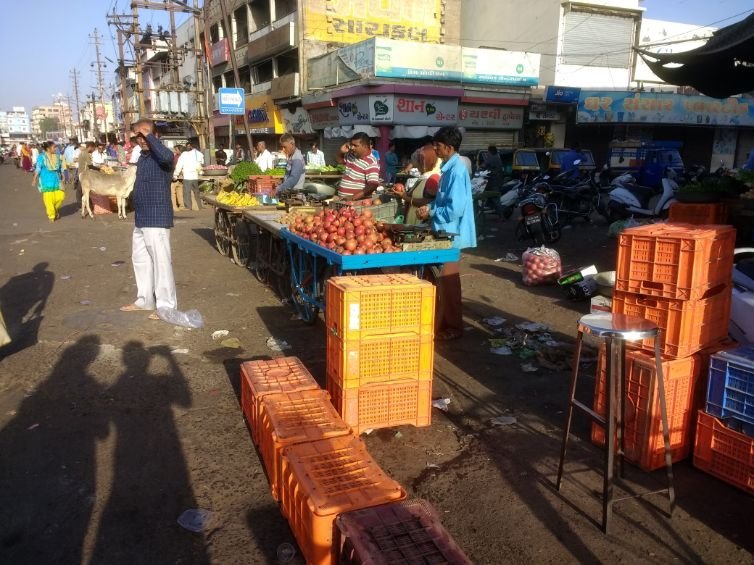
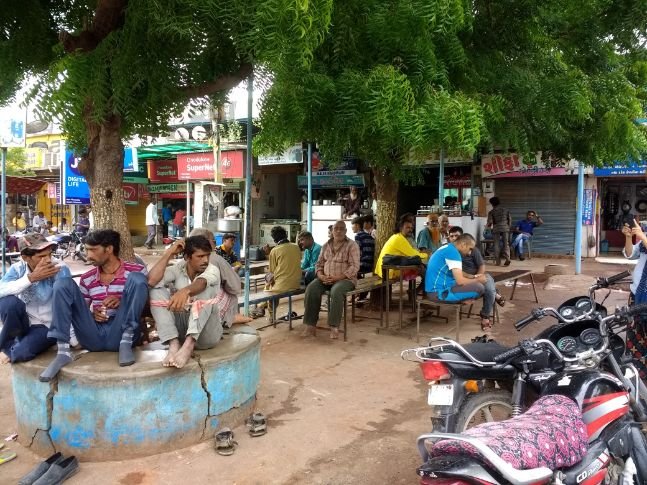
The findings of their research were shared with the citizens of Bhuj, local organisations, and government representatives during a workshop conducted under the ‘Homes in the City’ programme. Valuable suggestions and feedback were received, influencing the study and proposal for the city’s vendors. The scope of the project was expanded to encompass a deeper understanding of the streets and their role in the city’s fabric.
Parallel to their research, Hunnarshala also engaged with the government policy on street vendors, specifically the Support to Urban Street Vendors (SUSV) programme under the National Urban Livelihood Mission (NULM). They developed an information, education, and communication (IEC) pamphlet to raise awareness among street vendors about their rights and responsibilities.
Additionally, they assisted Bhuj Nagar Palika in forming a provisional Town Vending Committee (TVC) and continued to work with Urban Setu, an organisation dedicated to organising vendors for their legitimate rights, such as Identity Cards. They also collaborated with the municipality to design streets in accordance with the provisions of the policy.
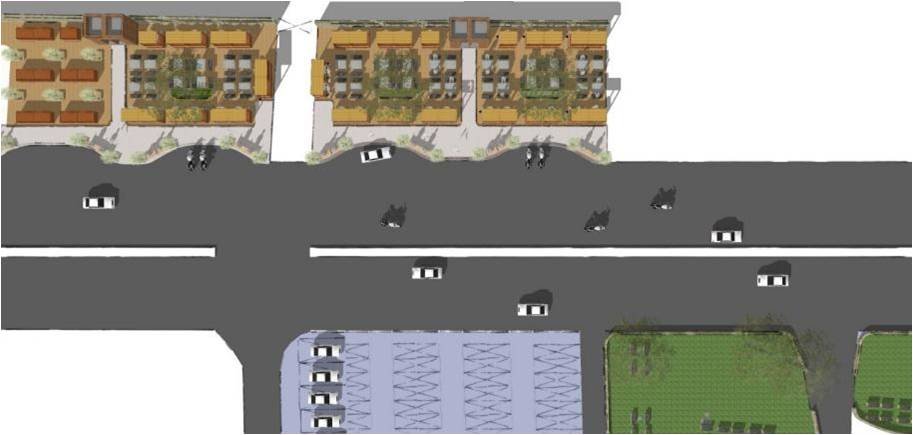

The work undertaken by Hunnarshala was driven by the recognition that vending was a major livelihood source for slum dwellers in Bhuj. Vendors played a crucial role as essential service providers in Indian cities, offering affordable services and contributing to economic equity. The organisation’s efforts aimed to formalise roadside vendors and integrate them into the urban economy. Their proposal for vendor formalisation and traffic management was submitted to Bhuj Nagar Palika under the National Urban Livelihood Mission’s scheme for street vendors.
As their work progressed, Hunnarshala realised that any proposal for vendors should consider the adjacent traffic flow. Consequently, they expanded their study and proposal to cover a larger stretch of the streets, including a major junction. This holistic approach recognised the interconnectedness of vendors and traffic and aimed to address the needs of both stakeholders.
To gain a deeper understanding of the social, political, and economic structures of vending in Bhuj, Hunnarshala collaborated with TISS. Students studying Urban Policy and Governance joined forces with teams from Hunnarshala and Urban Setu to conduct a comprehensive study of the vending fabric in the city. This study involved mapping and documenting ten streets, including the networks extending beyond the physical space but essential to the street’s identity. The results of the study were formulated into a report, contributing to a more informed and evidence-based approach towards vendor formalisation.
In conclusion, Hunnarshala’s journey towards formalising street vendors in Bhuj began in 2015 with a focus on vending and traffic. Through collaboration with TISS and engagement with the government policy, their work expanded to encompass a broader understanding of the streets and the vendors’ role within them. By conducting research, developing proposals, and assisting in the formation of a Town Vending Committee, Hunnarshala aimed to empower vendors and create a more inclusive and organised urban environment.
